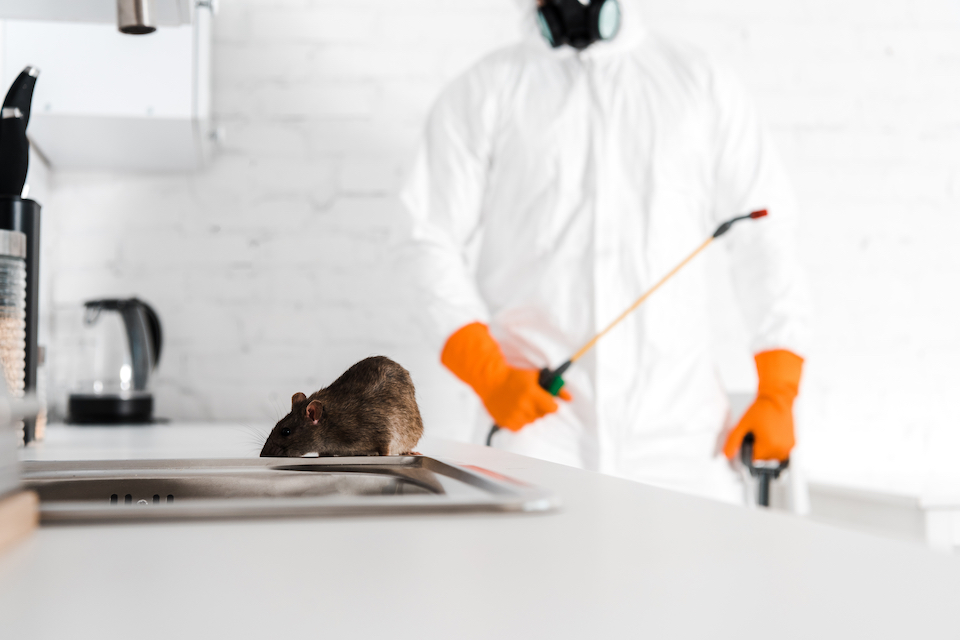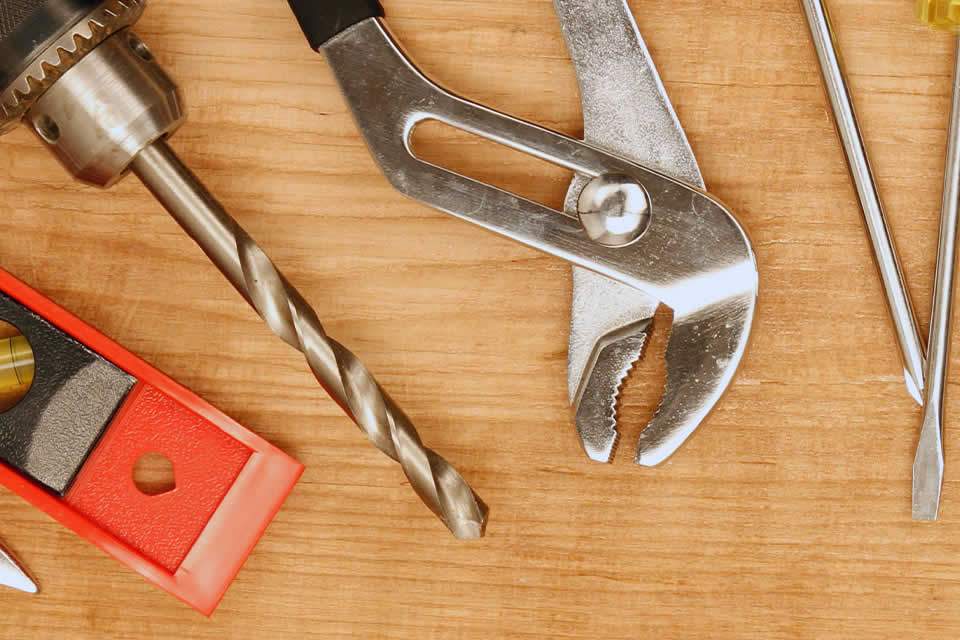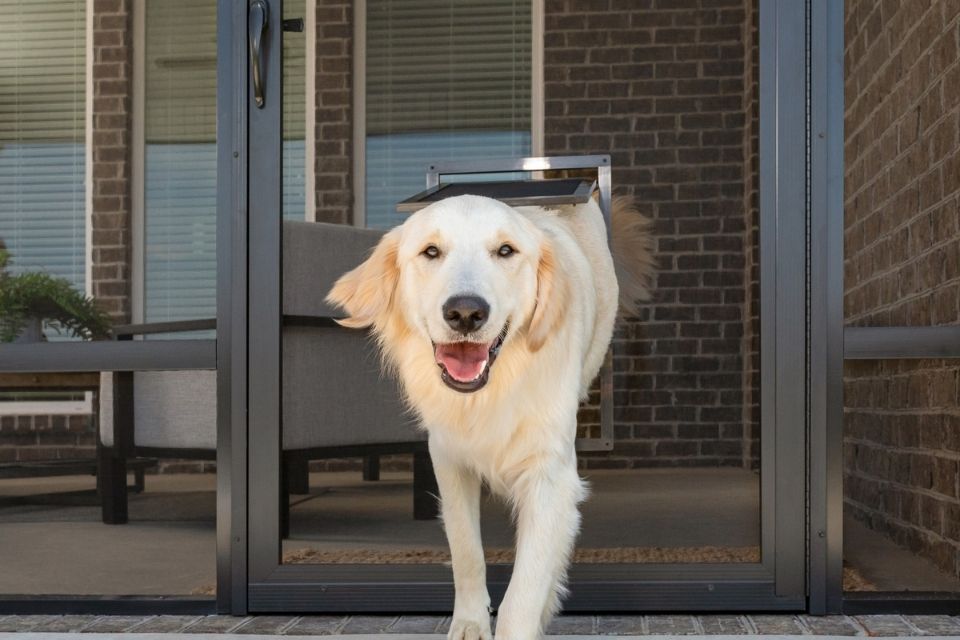How Much Do Rat Exterminators Cost?
It is estimated that there are twice as many rats as humans in the UK and the population of rats has been increasing.
This means that rat infestations in homes are becoming more common and pose a serious health risk.
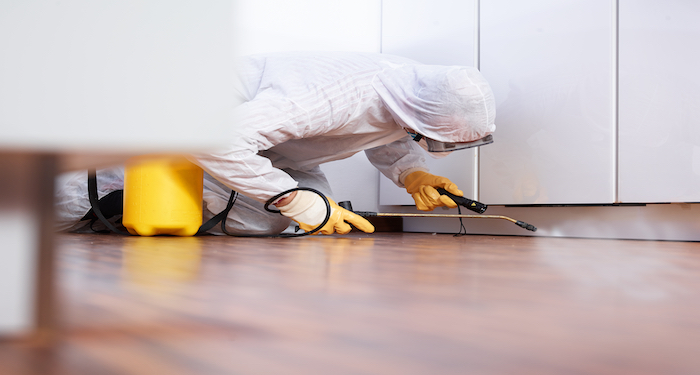
If you are faced with the problem of rats in your home, the sooner you resolve the issue, the less damage they will cause.
Hiring a professional rat exterminator is the quickest way to remove rats successfully. Fast action can prevent risks such as a fire caused by rats chewing through electrical wires.
Rats are also known to gnaw through water pipes and cause costly leaks in properties. They contaminate food and spread diseases, so urgent rat extermination will help protect you from these problems.
Rat infestations can quickly escalate, so read on to find out the average cost of rat removal in the UK.
This guide explains the different types of rat extermination methods, the costs of hiring a rat exterminator, and timeframes for rat removal.
Most pest control companies offer a three-stage plan, an initial survey to understand the extent of the problem, appropriate treatment, and a follow-up appointment to check that the treatment is working.
The average cost for rat extermination services ranges from £125 to £215.
Keep in mind: Pest control costs you're quoted will depend significantly on the extent of the infestation that you have.
Many rat exterminators will offer a free survey or inspection, but others may charge for this service. Rat exterminator survey fees, where companies charge for them, are around£35 to £45.
How Much Do Supplies for Rat Removal Cost?
There are many ways of exterminating rats without calling a rat exterminator. Eliminating the problem yourself may reduce the cost of rat extermination, although be aware that professional pest control experts will have access to products that you may not be able to purchase as a householder.
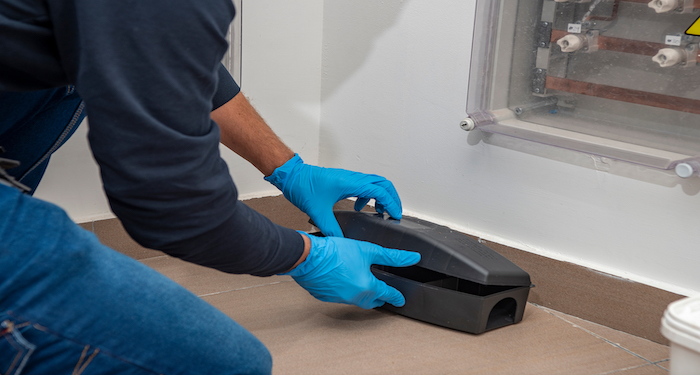
Snap Trap Cost
Snap traps are the traditional way of getting rid of rats in your home or business. A piece of bait is placed on the trap trigger, and a metal bar is held back under tension. When the bait is eaten, the tension is released, and the bar comes down to kill the rat.
These traps are the most budget-friendly. Although there are several different types, the principles of these traps remain the same. The average cost of a snap trap for rats is £4 to £6. They can be made from wood, plastic or metal.
Humane Kill Trap Cost
Humane kill traps ensure that the rat is killed instantly and does not suffer. This consists of a lure bait and a trigger that is activated by a CO2 cartridge or electricity, which eliminates the rat immediately with no undue suffering.
The trap then resets itself, ready for the next rodent. Humane kill traps are expensive, though, and prices range between £30 and £135 depending on which one you choose.
Catch and Release Cage Cost
Catch and release cages trap the live rat, which can then be taken to an area far from your property and released. They can be made from either plastic or metal and cost between £10 and £30 each.
Rodenticide Cost
Rodenticide is the proper name for rat poison. It can be used in pellet or block form and contains toxic chemicals that kill rats over time. Depending on the type, brand and quantity that you buy, the price of rodenticide is between £7 to £40.
What Additional Rat Exterminator Costs Are There?
Apart from the rat exterminator prices, there are additional costs associated with dealing with an infestation of rats. While the obvious costs may be rat traps, poisoned bait and the cost of hiring a pest control expert, there are other things to budget for in these situations.
The following are some of the additional costs that you could incur as a result of a rodent problem.
CCTV Drain Survey Cost
Rats can enter a property through broken drains. As they are excellent swimmers, the wastewater is no barrier to them. Exterminating rats from your property means finding out how they are gaining access and preventing them from re-using this entry point.
To check whether rats are entering by your drains, you will need to hire someone to carry out a drain survey with CCTV.
Drain survey costs will vary according to where you live and the extent of the survey.
A basic survey will cost between £65 to £165, while a more in-depth survey will be around £90 to £200. The price of a full CCTV survey with a report will be approximately £200 to £350.
Garden Clearance Cost
Prevention of recurring rat infestation is important, so figuring out the cause of your rat problem is key. An overgrown garden with lots of rubbish is a rat's paradise.
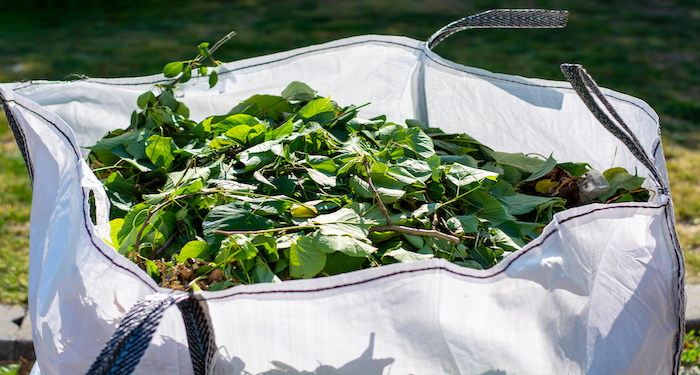
It provides many places to hide and lots of covers to move around unseen. Rats dislike being out in the open as they have poor eyesight, so they naturally seek hidden routes between food sources and their nest.
By keeping your garden neat and tidy with the grass and hedges cut, you will reduce their hiding places. Removing rubbish and clutter will also reduce the appeal of your garden. The cost of garden clearance varies depending on where you live. However, the average cost of garden clearance is £150 to £200.
House Clean Cost
As well as tidying your garden, it is very important to keep your house clean. This will discourage rats from attempting to enter your home but should be done in conjunction with other measures. A clean house is no guarantee that rats will not gain access, but it helps as a deterrent.

Deep cleaning your property is a good basis for ongoing cleanliness, especially in your kitchen and where you store food. Indoor and outdoor bins should ideally be metal and have lockable lids. They should also be regularly washed and disinfected with bleach.
Domestic cleaning prices are typically between £15 to £20 per hour, but rates tend to be higher in the southern parts of the UK.
Loft Insulation Cost
Rats are adept at getting into houses through any opening. In fact, they can squeeze through a hole just 16mm wide. Once inside, they will climb through cavity walls and can take up residence in your loft. This is an ideal place for them to nest, and they will rarely be disturbed by human activity.
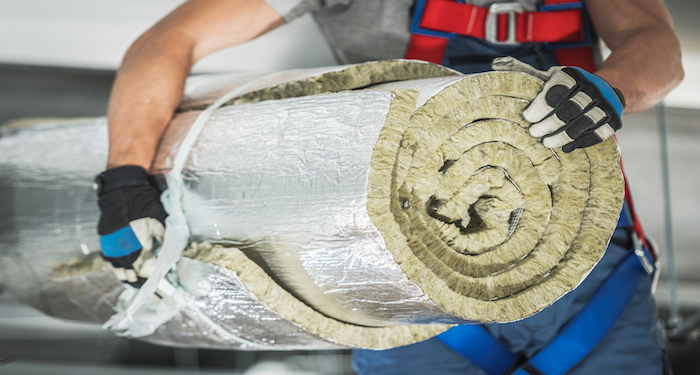
However, the destruction rats can cause in a loft can be extremely costly. They will gnaw through electrical cables and water pipes and destroy your insulation.
Not only that, but they will defecate and urinate everywhere, producing a very unpleasant smell of strong ammonia. If you discover that you have a rat infestation in your loft, then you will need to consider replacing your loft insulation.
Loft insulation costs you're quoted will depend on the type of insulation you're looking to get installed.
Blanket insulation tends to be the cheapest, and you can buy this for between £7 and £12 per square metre. Board insulation is more expensive at an average cost of £35 to £40 per sheet.
How Much Does Rat Control Cost in the UK?
If you want to know how much pest control costs for getting rid of rats, you need to understand the type of rat extermination services you're looking for. Some rat exterminator costs include a survey and a follow-up appointment to check that the treatment is working.

Others will charge for a survey and include two or three follow up visits. This section only deals with the labour charges as part of rat extermination costs and does not include any rat removal products or devices.
The hourly rate for a rat exterminator is between £40 and £50. An average daily rate is approximately £150 to £250, but this can be less or more depending on where in the UK you live.
London and the southeast of England are typically the more expensive areas due to the higher costs of living, business rates and rental costs.
How Long Does Professional Rat Extermination Take?
When you realise that you have a rat problem, you will want to get it dealt with immediately. The quicker the infestation is eliminated, the less damage will be done to your home or property, and the easier you will sleep at night.
The length of time it takes to get rid of rats will depend on how skilled your rat exterminator is, how quickly they can catch all the rats, and what is causing them to come into your home.
The most efficient rat extermination should take no more than one week.But because rats breed rapidly and live close together, sometimes pest control companies have to spend an extra day or two ensuring they have caught every last rat.
Rat Extermination Process
Survey
An initial survey by a pest controller will involve investigating the evidence of rat infestation and their potential access points and checking your drains.
Loft Investigation
The exterminator may also investigate your loft and ask questions about visible and audible signs of rat presence. The duration of this first visit will depend on the size of the property. On average, it will take between 1 and 2 hours.
Evaluation and Recommendations
Once the extent of the rat problem is understood, the exterminator will discuss options and potential treatments and solutions with you. Some properties with rat infestations may benefit from bait and spring traps, others may be best suited to rodenticide, and some clients may prefer a live catch-and-release method.
The exterminator will go through all possibilities and discuss prices and the expected outcome.
Treatment for Rat Removal
When treatment has been agreed, the rat exterminator will return to implement it. This will involve placing the bait boxes, traps or cages in high rat activity areas, ensuring they are safe from pets and children.
This part of the process should take no more than 1 to 2 hours, depending on the extent of the infestation and where the traps, cages or bait boxes are being placed.
Re-assessment
The treatment will be left in place for an agreed amount of time. This may be a week or two or even up to a month. After this time period has elapsed, the rat exterminator will return to assess the effectiveness of the traps, bait boxes or cages.
Rats are neophobic, which means they fear new things, so it may take a while for them to become accustomed to the boxes or cages.
The duration of this follow-up visit will depend on several factors, including how effective the solution has proven to be, replenishing of bait, disposal of dead rats or releasing live catches. Typically, it may take 1 to 2 hours.
| Size of Property | Survey 1st Treatment | 1st Treatment | Follow Up |
|---|---|---|---|
| 1 Bedroom | 30 – 60 mins | 60 – 75 mins | 30 – 60 mins |
| 2 Bedrooms | 45 – 60 mins | 60 – 90 mins | 45 – 60 mins |
| 3 Bedrooms | 60 – 90 mins | 1 – 2 hours | 60 – 90 mins |
Types of Rat Extermination
So, how do you get rid of rats? What methods are available, and which should you choose for your property?
There are two ways to kill rats, one is with poison, and the other is without. The method that you use will be determined by the size of your infestation, your budget and your personal choice. Live catch and release are also a possibility.
Poisoned Bait
The first type of extermination uses traps or bait boxes. The bait is laced with chemicals that will kill rats upon ingestion. Rats cannot vomit, so the poison can't be expelled.
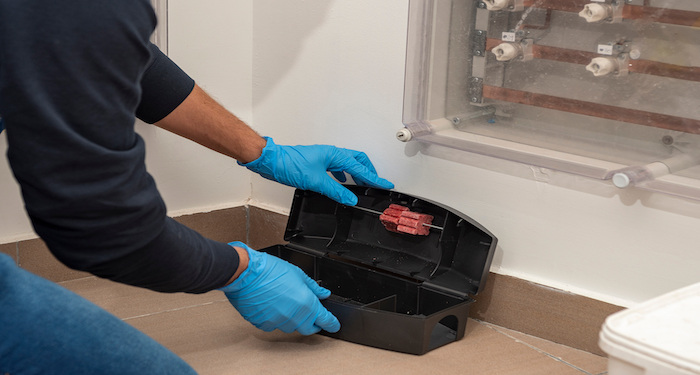
However, poisoned bait is not the best idea if children or pets might come into contact with it, as the chemicals can be dangerous to them as well.
Secondary ingestion of the poison is also a consideration. If a cat or dog eats a rat that has been killed with poison, then they can be affected by the toxin as well.
This could kill them or at least make them seriously ill. Rats are also becoming resistant to certain poisons, which means stronger or different chemicals have to be used in order to be effective.
When a rat is poisoned, it will not die immediately. Often, it will return to its nest or another place in your home and die there. The body will then rot and decay, releasing a powerful and highly noxious smell that lingers for weeks.
In hot weather, the decaying corpse can attract flies that will lay eggs on the body, these then hatch, and you will have the secondary problem of a fly infestation.
The cost of using poisoned bait to kill rats will depend on the size and type, but average costs range between £7 and £40. Labour costs for putting down poisoned bait are on average £40 to £50 per hour or £150 to £200 per day.
Pros:
- Effective
- Reasonable cost
- Can be left in place for several weeks
Cons:
- Danger to pets and children
- Risk of secondary poisoning
- No control over where the rat dies
Traps
The second kind of rat extermination doesn't use any toxins at all. It uses traps or other methods to kill rats. Snap traps operate on a tensioned trigger, which is loaded with bait.
When the trigger is activated, the trap snaps and kills the rat. However, they do not always kill instantly, and some people consider them inhumane.
Electronic rat traps operate on microelectronic circuit technology. When a rat enters the trap, a lethal high voltage shock is delivered, and the rat is killed instantly. The trap can also be emptied without touching the dead rat.
Other traps deliver a deadly and instant compression blow to the rat when it enters the trap to eat the bait. These traps operate on CO2 gas and will automatically reset after operating. Up to 20 rats can be disposed of on one cartridge of CO2 gas.
The cost of traps varies according to the type and make. Snap traps are the cheapest, costing an average of £4 to £6 each. Electronic traps are more expensive, with prices ranging from £30 to £50.
Traps that operate on CO2 gas cost approximately £140 to £160. The rat exterminator cost for setting traps is £40 to £50 per hour and an average of £150 to £200 per day.
Pros:
- Basic traps are cheap
- Most are instant kill
- No threat to pets or children
- Can be placed outdoors or indoors
Cons:
- Electronic and CO2 versions are expensive
- Considered inhumane by some people
Catch & Release Cages
For people who don’t want to use poisoned bait or any form of kill trap, catch-and-release cages are a suitable alternative.
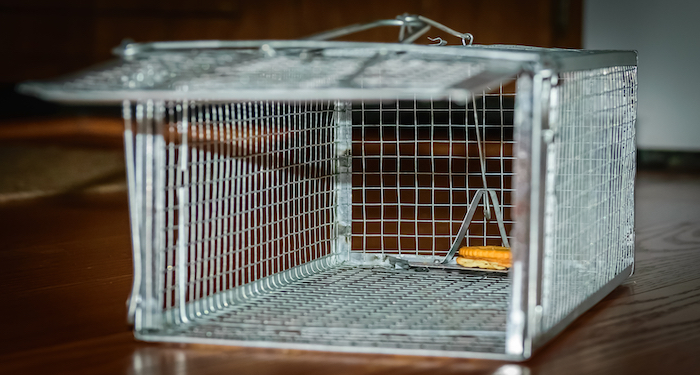
Live catches can be released into an area away from where humans and pets are located, such as in a scrubland or a forest. Rats do not like new environments, and if released less than half a kilometre from their original home, they will return.
A non-poisoned bait is used to lure the rat into the cage. A pressure pad on the trap is activated when the rat enters, and it is caught but unharmed.
Most live catch and release cages have a solid top so the rat cannot bite or scratch you when you lift the cage. However, you should wear thick gloves as a precaution.
The cost of rat extermination through catch-and-release traps will depend on whether you use them yourself or as part of a professional pest control service.
The cages or traps cost between £10 and £30, with some capable of catching multiple rats at one time. If you hire a rat exterminator to set the live catch cages, the cost will be approximately £40 to £50 per hour or £150 to £200 per day.
Pros:
- No use of poisons
- Humane
- Rat is unharmed
Cons:
- Need to be checked frequently
- Rat needs to be transported to a safe distance and released
FAQs
Q: What does a rat exterminator do?
A: A rat exterminator is responsible for controlling, preventing and eliminating rats from your home or business premises.
The first step when getting rid of rats should be to prevent them from entering your property in the first place. Rat pest control is typically about prevention rather than extermination.
If you have already got an infestation and want to get rid of rats, then professional rat control is needed. A simple internet search of ‘rat exterminator near me’ will give you plenty of information for hiring a pest control specialist in your locality.
Q: How can I tell if there are rats on my property?
A: There are several signs of rat infestation, but they may be mistaken for other pests like mice or bats. One way to tell if you have rats is to look for faeces, chew marks, and evidence of destruction.
Other signs are shredded materials that are used for nesting and a strong smell of ammonia. Smear marks along your skirting boards from grease on the rat's fur are also an indication of rat presence in your home.
Q: Which extermination methods are most effective?
A: Exterminators use baits, traps, and poisons to eradicate rats. Some of these methods are more effective than others. Rat poisons can kill rats in as little as 48 hours.
Rat traps allow you to kill multiple rats at once and then dispose of them safely. Traps are usually safer than poisons but take longer to kill rats since they must be taken off-site for disposal.
Q: How can I prevent a rat infestation?
A: Prevention is better than cure, so there are things you can do to stop rats from invading your home in the first place. Keep outside areas clear of rubbish, don't put food waste in a compost heap or open bins, and use metal bins with lockable lids.
Block any access points, such as around pipework. Inside the home, keep foods such as cereal in containers, preferably glass. Do not leave food lying around on countertops either, and ensure you empty your bins regularly.
Q: Do rats smell?
A: Rats don't sweat as humans do, so they release their body odour and pheromones through their urine, droppings and even breath. They will urinate to mark territory, and this gives off a very strong ammonia smell.
Rats that have been poisoned and subsequently die beneath floorboards or in walls will decay and rot. This is a highly unpleasant and distinctive smell that takes several weeks to disperse.
Q: How can I dispose of a dead rat?
A: To legally dispose of a dead rat, you can place it in a sealed plastic bag and put it in your general waste bin.
Make sure that you wear rubber or plastic gloves when handling a dead rat to protect you from potential diseases.
Q: How do exterminators remove rats that are in walls?
A: Rat exterminators may use traps, rodenticides or bait stations to remove rats from walls. They will usually also find the entry point and seal it.
The rat exterminator may need to create an access point in the wall to remove the rat.

